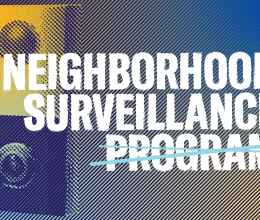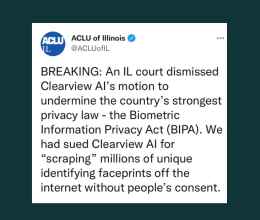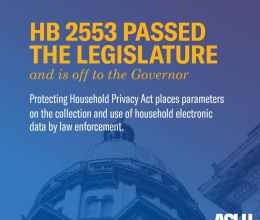
A Chicago Housing Authority (CHA) resident, living in the Oakwood Shores mixed-income development on the South Side of Chicago, faces eviction from her apartment as a result of the CHA’s approval of an unconstitutional suspicionless drug-testing scheme. The ACLU of Illinois recently filed an amicus brief in the case. The ACLU has advocated against drug-testing schemes approved by CHA officials, including those at mixed-income facilities for a decade.
Most recently, in November 2011, the ACLU sent a letter to CHA asking it to end its approval of policies of mandatory suspicionless drug testing at mixed-income developments.
“We urge the court to reject this eviction and call upon the CHA to end the policies that subject residents and applicants to humiliating, invasive and stigmatizing drug testing,” said Adam Schwartz, senior legal counsel for the ACLU of Illinois. “There is no evidence that individuals who rent CHA apartments are more likely to use drugs than residents who rent or own other properties throughout the City of Chicago.”
“Singling out these individuals simply is unnecessary and a diversion of precious resources, “ added Schwartz.
The ACLU amicus brief notes that (based on data gathered by the ACLU in September 2011) more than 1,500 CHA residents who are age 18 or older live in six mixed-income developments in Chicago. Yet, only 51 CHA residents at these facilities tested positive for drugs over several years that the suspicionless drug testing policies have been in place. This small number of positive drug tests has not resulted in a single eviction (until the current pending case). Assuming that each test costs $50 (a common price), this policy costs more than $75,000 each year.
The ACLU also notes that the practice of subjecting CHA residents to such drug testing violates both the U.S. Constitution’s Fourth Amendment and the Illinois Constitution’s Privacy Clause. Our state constitution is even more protective of personal privacy than the federal constitution. Because of these violations, the ACLU of Illinois calls on the court to dismiss the eviction effort.
“This case provides the CHA Board with another opportunity to listen to the voices of its residents and drop this harmful practice,” added Schwartz.






